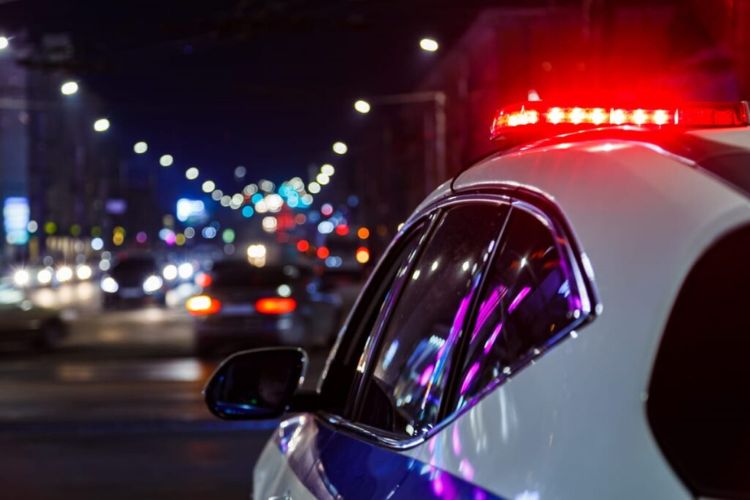Car accidents happen every day, and the drivers aren’t the only ones who suffer serious car accident injuries. If you’ve been injured in a Tampa crash and you were a passenger in one of the vehicles, you may be wondering: Can a passenger sue the driver in an accident? The answer is yes — but only in some situations.
When you need to recover car accident compensation, it’s a good idea to understand the basic laws around crash injury compensation and take stock of your options. However, if you’re serious about recovering the money you need, it’s best to get in touch with a Tampa car accident lawyer as soon as possible.
Situations When a Passenger Can Sue the Driver After a Crash
After any type of accident, recovering injury compensation first requires proving negligence. Negligence can be established in a variety of ways. This is especially true after a car accident because there are so many ways that a driver’s illegal or unwise actions can directly cause a crash.
Driving Under the Influence
Driving under the influence is one common way to easily establish a driver’s negligence in a crash. Drunk driving is both dangerous and illegal. When a driver chooses to drive despite being intoxicated, it’s usually fairly easy to establish that they were at fault for the crash.
Reckless Driving
Reckless driving refers to driving in a way that endangers the safety of others on the road. Common examples of reckless driving include:
- Following too closely
- Not using a turn signal
- Making erratic lane changes
- Weaving in and out of traffic
- Street racing
- Passing on the right
- Aggressive driving
When a driver engages in reckless driving, it is considered to be a form of negligence. Reckless driving can be harder to prove. It often requires additional steps like obtaining witness testimony, traffic camera footage, or the testimony of an accident reconstruction specialist.

Illegal Driving Maneuvers
Another way of establishing driver negligence is proving that a driver violated basic driving laws. There are nearly endless ways drivers can do this, and the result is often a crash that injures passengers and the drivers of other vehicles. Common examples of illegal driving maneuvers include:
- Speeding
- Running a red light or stop sign
- Failing to yield
- Making an illegal U-turn
Illegal driving maneuvers and reckless driving often overlap. Similarly, proving that a driver broke a driving law requires obtaining evidence demonstrating how the driver broke the law.
Distracted Driving
Distracted driving has become an increasingly common cause of car accidents. Talking on the phone while driving is a leading cause of distracted driving, and it’s also illegal in most states.
However, talking on the phone is just one form of distracted driving. Other common examples include:
- Reading or answering texts or emails
- Checking social media notifications
- Taking photos or videos
- Adjusting music
- Consulting a GPS app
- Talking to passengers
- Eating
- Applying makeup
- Daydreaming
Anything that takes a driver’s eyes or attention off the road is considered distracted driving. In some cases, a lawyer may be able to obtain proof of distracted driving, like by requesting copies of the driver’s cell phone records.
Reasons a Passenger Can’t Sue the Driver in a Car Accident
Once you understand that driver negligence is the basis for suing in a car crash, it’s easy to see that if you can’t establish negligence, you can’t sue the driver. When it comes to passenger injuries, there are several reasons why a passenger can’t sue the driver of the vehicle they are riding in.
However, that doesn’t necessarily mean there are no options for obtaining car accident injury compensation. Trying to identify other negligent parties is a key strategy car accident lawyers use to help an injured passenger obtain injury compensation, even when the driver can’t be held responsible.
The Driver Didn’t Cause the Crash
If the vehicle driver wasn’t deemed at fault for the crash, the passenger probably can’t sue that driver for injury compensation. However, they can try to obtain compensation through the insurance policy of the other driver involved in the accident.
Poor Road Conditions or Vehicle Defects
Sometimes, no driver is at fault for a car crash. Poor road conditions and vehicle defects are two common situations in which another party might be deemed negligent. When this happens, the injured passenger might still be able to recover compensation through a personal injury claim or a product liability claim.
The Driver Is the Passenger’s Relative
Under Florida personal injury law, you can sue any driver if they caused the crash and you were injured. However, it’s good to be aware that insurance policies often contain a clause specifying that immediate family members living in the same household as the covered driver cannot sue for damages above the policy coverage limits.
Unavoidable Accidents
Unavoidable accidents are rare, but they’re good to be aware of if you’re trying to obtain car accident insurance coverage as an injured passenger. In some cases, the circumstances leading up to the accident can lead a court to determine that the accident was unavoidable. This can make it very difficult to obtain injury compensation.
Florida Car Insurance and Passenger Coverage
Every state requires drivers to carry a minimum amount of liability protection in case of a car accident. In Florida, these minimum coverage amounts are:
- $10,000 in personal injury protection (PIP)
- $10,000 in property damage liability (PDL)
If a passenger is injured, up to $10,000 can be obtained for injury compensation for the passenger’s injury if the driver carries minimum coverage. Coverage limits depend on the policy terms if the driver has a more generous insurance policy.
Unfortunately, serious car accident injuries often incur medical expenses that far surpass $10,000. In cases like this, an injured passenger may need to consider suing the driver for the injury compensation they need.
How a Passenger’s Actions Impact Car Accident Compensation
What a passenger does — or doesn’t do — can directly impact car accident compensation. If the passenger was not wearing their seat belt, Florida’s comparative fault laws mean they can be assigned a portion of the negligence.
Then, the compensation value they are eligible for can be reduced by that percentage. However, they can still recover compensation if they are less than 50% responsible for the accident.
Similarly, a passenger must know what to do after a crash. Seeing a doctor and calling a lawyer right away can significantly impact whether you can recover compensation.
Building a Case Against the Driver in a Florida Car Accident
Tort law revolves around the central concept of negligence. You need to prove that someone’s actions amounted to negligence and that your injuries directly resulted from that negligence. A Florida car accident lawyer proves negligence by showing:
- The driver owed you a duty of care
- The driver violated that duty of care
- You were injured as a direct result
- You can provide proof of damages
In the context of a car accident, whether a passenger can sue a driver after a crash depends on proving that the driver’s negligence was the reason for the accident. This is true regardless of whether the at-fault driver was driving the other vehicle or if they were operating the vehicle the passenger was riding in.
If the driver leaves the scene of the accident or breaks Florida laws, the passenger may be able to seek additional restitution payments from the driver. It’s important to consult a car accident lawyer to fully understand the possible compensation options available to you.



